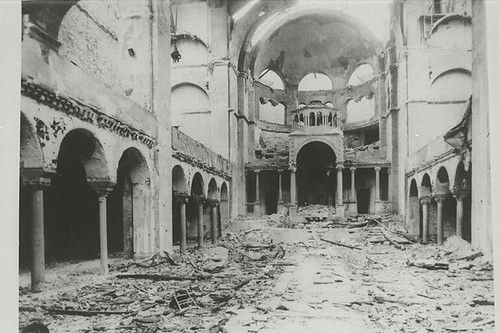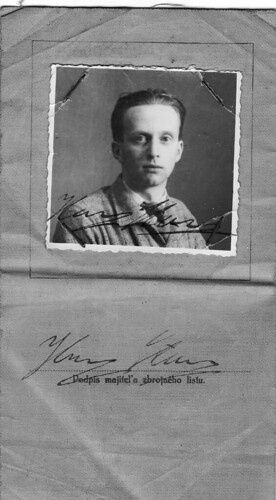However, my ambivalent feelings are increased because Remembrance Sunday seems to be focussed on the soldiers who fell in the wars and of course should be remembered and mourned. But meanwhile the civilians, who also died in great numbers, seem forgotten. I feel this personally as somewhere in the region of three-quarters of my paternal grandfather's family died or disappeared as civilians, whole families vanishing in their entirety, in the Holocaust during the second world war.

From a synagogue destroyed in Berlin on Kristallnacht Flickr Commons
This year Remembrance Day falls on the 75th anniversary of Kristallnacht when the Nazis attacked Jewish people, homes, businesses and synagogues in Germany and Austria in reprisal for the killing of a German diplomat in Paris by a Jewish youth. Ninety one people died and 30,000 were sent to concentration camps, but it marked the beginning of the Nazi "final solution". My grandfather and his mother were lucky, they got out, my grandfather on the last train he could legally have got; his father and most of the rest of his family were less lucky.

My grandfather in his 1935 Czech passport
These events and the sense of loss they created have cast a long shadow across my family. We need to remember all who have died or suffered loss on all sides, and never to allow remembrance to become glorification of war. Although on the last point I think this ex-serviceman, writing in the Guardian puts things better than I can. When I hear the jingoistic writing from the beginning of the first war repeated again and again by politicians, the media, social media, as part of remembrance day I shudder inwardly. One might as well repeat the last line of Wilfred Owen's Dulce et decorum est and omit the all important context, of "the old lie".
And for the future? We need to keep talking, keep telling the stories, try to stop ourselves repeating the same mistakes again and again. We need to make sure our remembrance does not become justification for current or future war and work and pray for peace and reconciliation and healing.
Father forgive us our follies, grant us peace, comfort those who mourn, help us to love mercy and seek justice and walk humbly before you.
I leave you with Michael Tippett's Oratorio A Child of Our Time, which was written in 1939 in response to Kristallnacht.
Thank you for writing this post. You are right - it wasn't just soldiers who died during the war, and it is ever so important to remember that fact. I'm off to read the article you have linked to.
ReplyDelete